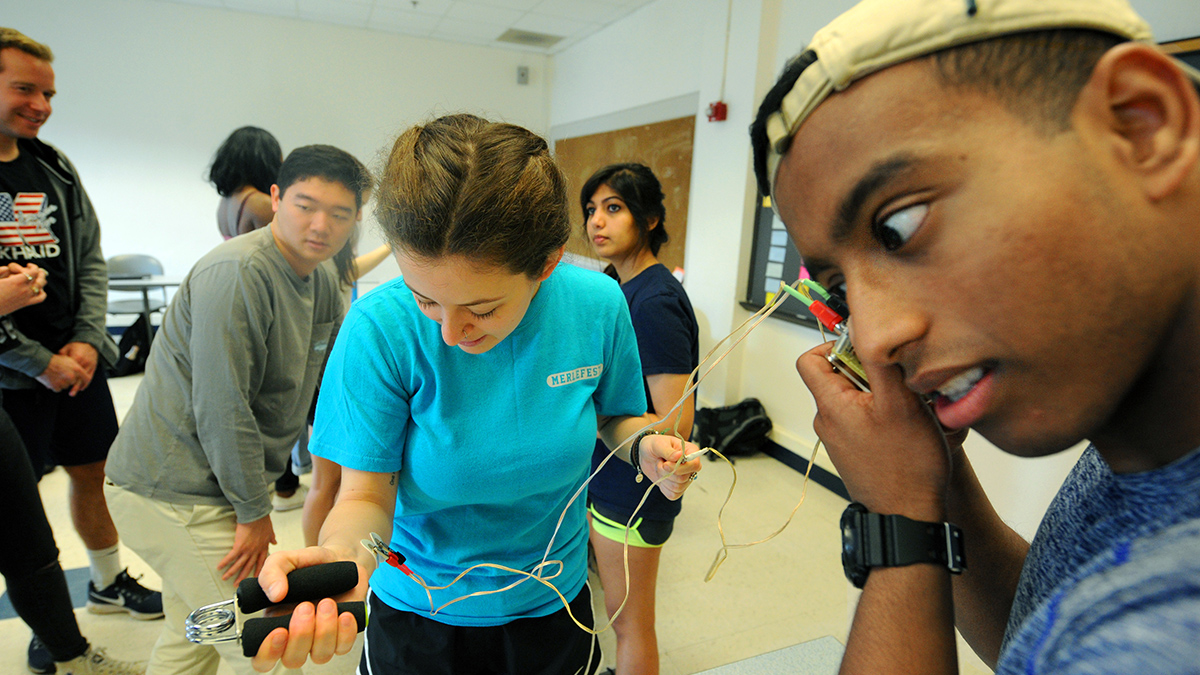College of Arts & Sciences adds interdisciplinary neuroscience major
The neuroscience major will be housed in the psychology and neuroscience department but will involve 10 academic departments. The major builds on the success of the popular neuroscience minor.

The College of Arts & Sciences is launching a new interdisciplinary major in neuroscience, drawing on the strengths of 10 academic departments —biology, biomedical engineering, biostatistics, chemistry, computer science, exercise and sport science, mathematics, physics and astronomy, psychology and neuroscience, and statistics and operations research.
“We know that there is great demand for a neuroscience major, and we want to better position Carolina to prepare students for future careers in brain science and brain health,” said College of Arts & Sciences Dean Kevin Guskiewicz, who is a neuroscientist and nationally recognized expert on sport-related concussions. “Neuroscience will also be a component of our new Institute for Convergent Science, as we bring together researchers from multiple disciplines to solve grand challenges around disease detection and treatment.”
Kelly Giovanello, professor and director of the neuroscience curricula, led an executive advisory committee involving faculty from the 10 academic departments and the School of Medicine’s UNC Neuroscience Center in planning the major.
“This began as a grassroots movement among the students,” she said.
In 2009, Giovanello’s then-undergraduate student Amy Abramowitz (who has since graduated from Northwestern University’s medical school), approached her about starting a neuroscience club. The Carolina Neuroscience Club is going strong nine years later and in spring 2018 included more than 500 members. The department will continue to offer the neuroscience minor, which began in 2015; 535 students declared the minor this past spring, according to numbers provided by the registrar’s office.
“We believe neuroscience studies will provide students with the fundamental knowledge and exposure needed to pursue careers and postgraduate studies in fields related to psychology, human development and aging, health and disease, rehabilitation, biomedical research, human-machine interactions and other emerging disciplines,” Giovanello said.
The psychology and neuroscience department has hired two new teaching assistant professors to help meet the demand. Both will join the faculty this fall. Rachel Penton, coming from the University of California, Santa Barbara, will develop a class in neuropsychopharmacology (a field at the intersection of brain, behavior and therapeutics). Sabrina Robertson, from NC State, will teach a new class in neurotechnology.
“Our goal is to make the neuroscience major at Carolina the best in the country,” Giovanello said. “We have about 115 faculty doing neuroscience work across campus. With the support of our colleagues, we’ll continue to develop new courses to meet the ways in which this interdisciplinary field is growing.”




